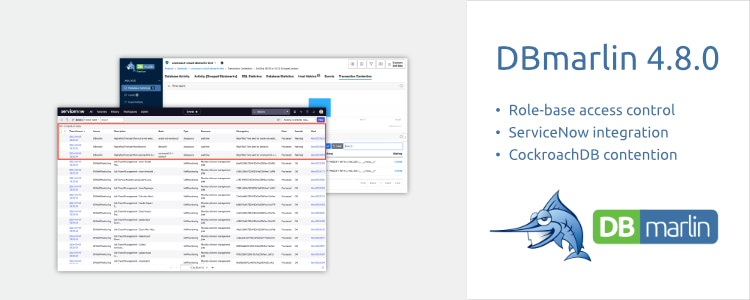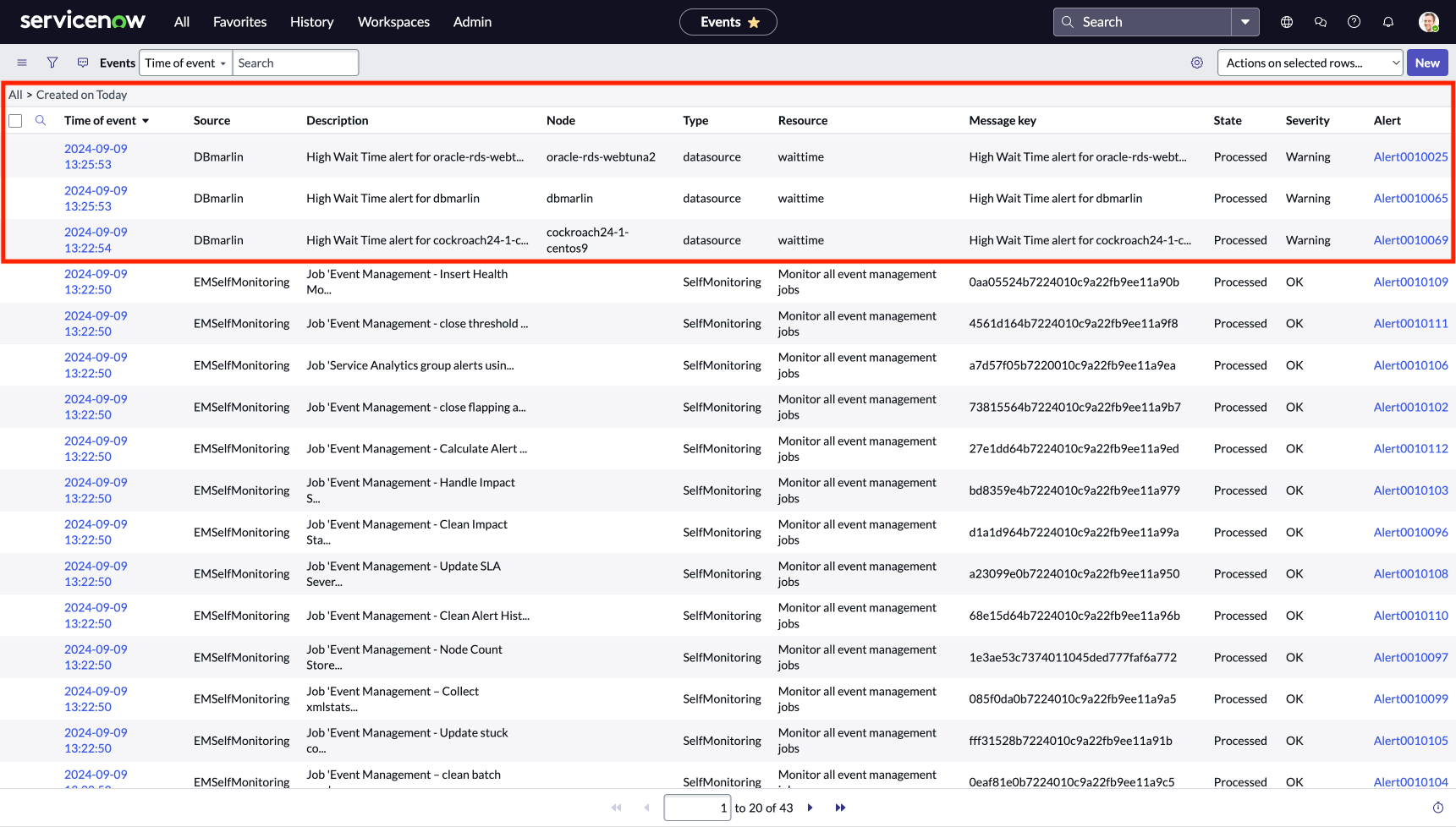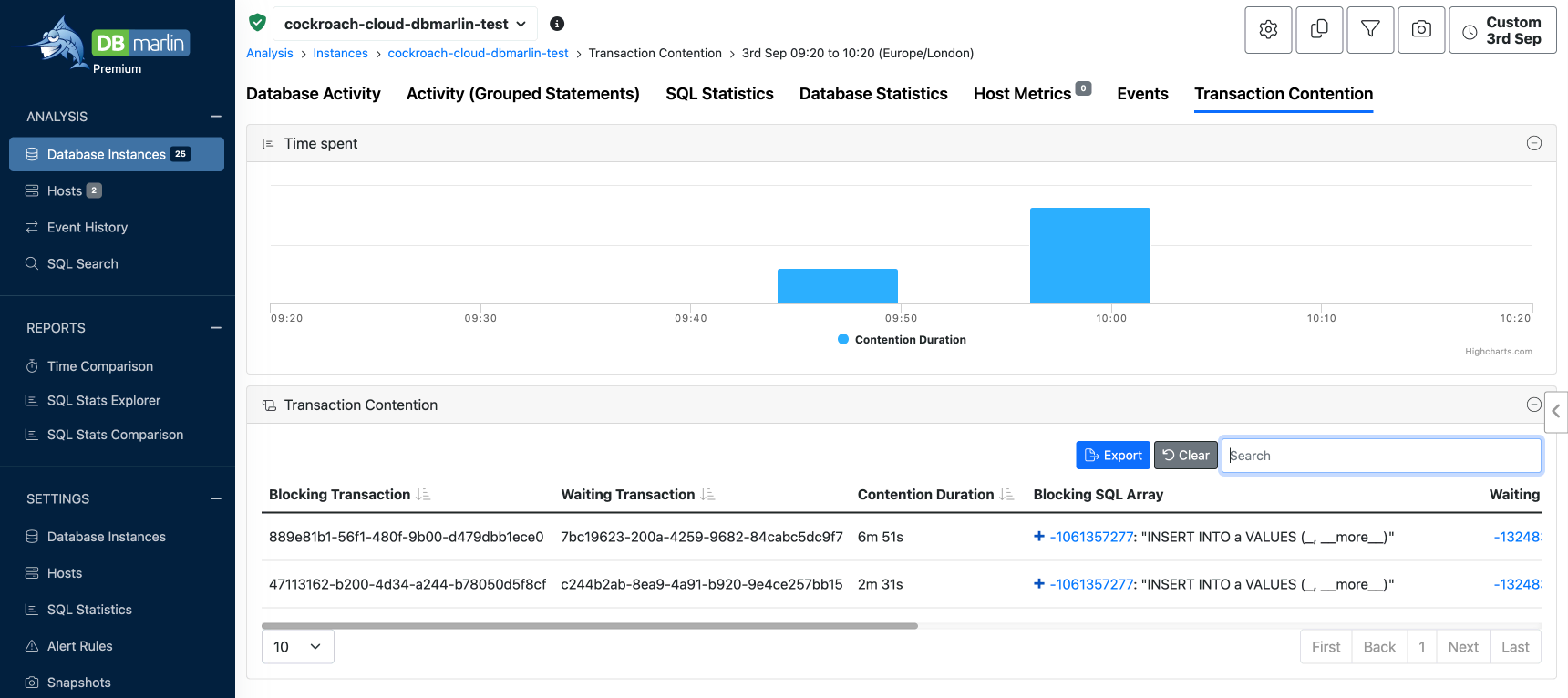DBmarlin 4.8.0 adds RBAC, ServiceNow and more

We are pleased to announce the release of DBmarlin 4.8. This version add Role-based access control (RBAC), alerting to ServiceNow, additional contention information for CockroachDB and more.
Role-based access control (RBAC)
Role-based Access Control commonly known as RBAC lets you control what level of access a user has within DBmarlin. This is a much requested feature, particularly for those monitoring a very large number of instances.
There are two types of users: Administrator and Regular. Admin users can see all databases and do all operations within DBmarlin while Regular users must be granted access to a subset of instances by an Administrator user. The access is managed via instance tags so for example you could grant access for a user to to only see those instances where App=ecommerce (or any other combination of instance tags you like).
ServiceNow support
DBmarlin is now able to send alerts to ServiceNow. ServiceNow is a cloud-based platform that provides a suite of software tools for IT service management (ITSM), IT operations management (ITOM), and other business process automation.
If you are using ServiceNow, see the setup in the docs to get your DBmarlin alert events flowing into ServiceNow.

CockroachDB transaction contention
The CockroachDB transaction contention screen which was added in DBmarlin 4.7 now has an added chart so you can see over time when the contention is occurring, as well as the tabular list of block and waiting transactions and the SQL they were executing.

Azure SQL CPU and Memory metrics
Microsoft Azure SQL is a popular DBaaS (Database-as-a service) running in the Microsoft Azure cloud. With DBaaS platforms such as Azure SQL, it isn’t possible to get host metrics via a Linux or Windows sensor since the operating system layer is managed by the cloud vendor.
Now in DBmarlin 4.8 you can see host metrics like CPU and memory usage under the Database Statistics screen. These are collected via a SQL Server query and therefore don’t need a host sensor.
Other notable improvements
For those who are sending DBmarlin data into New Relic using our integration, it is now possible to send data for just a subset of the instances you are monitoring in DBmarlin rather than sending data for all instances. As always we include some smaller improvements to the product to enhance the user experience such as keeping the selected period when opening in a new tab. See the release notes for a full list of changes.

